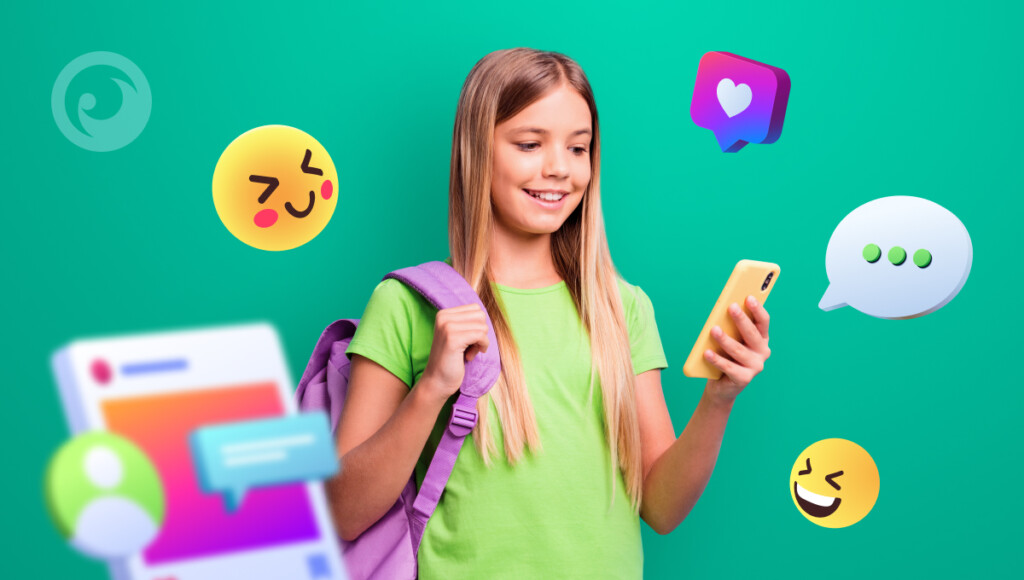With dangers like online predators, cyberbullying, and screen addiction looming, preparing kids to manage these threats proactively is essential. By instilling digital literacy early, you can equip your children to use social media and the internet wisely and safely. Discussing your expectations, modeling good technology habits, and using mobile phone monitoring tools give them the knowledge and confidence to become responsible digital citizens. While supervision is still important, this approach helps them gain autonomy and learn lessons in a supportive environment.
Set Clear Rules and Expectations for Device Use
To ensure your child’s safety and digital literacy, clearly communicate your expectations for responsible device use. Sit down with your child and have an open conversation about setting rules and boundaries around their phone and social media use:
- Define specific times when phone use is allowed and prohibited, such as no phones during dinner or after bedtime. Explain your reasoning, emphasizing the importance of real-world social interaction and sleep.
- Discuss appropriate and inappropriate content and behavior. Be clear about cyberbullying, online predators, and privacy violations. Establish consequences for breaking these rules.
- Limit screen time and encourage balance. Require your child to participate in physical activity, social interaction, and hobbies away from their device. Lead by example and limit your technology use when with family.
- Monitor phone and social media use. Use parental control apps to block inappropriate content and set time limits. Review your child’s text messages, call logs, and social media posts regularly to ensure they behave safely and responsibly.
Monitor Phone and App Usage for Accountability
To instill digital literacy in teens, monitor their phone and app usage for accountability. Parental monitoring software allows you to:
- See which apps your teen is using and for how long. This helps identify potential issues early on, like cyberbullying or online predators targeting teens on social media. You can then have constructive conversations about responsible technology use.
- Set app time limits and see reports showing your teen’s daily phone usage. Enforce limits by restricting app access or locking their phone remotely. This teaches self-regulation and the importance of moderation.
- Review your teen’s text messages, call logs, web searches, and location history. Monitor for signs of risky behavior or mental health issues and address them promptly. Open communication about their digital lives builds trust in the long run.
- Require approval for new app downloads. This prevents exposure to age-inappropriate content and encourages your teen to come to you when they have questions about new technology.
Monitor Screen Time and App Usage
Checking how much time your child spends on their phone and which apps they use most can reveal opportunities for open conversations about balance and boundaries. For example, if you notice Snapchat is their most used app, discuss sharing photos and videos on social media, privacy concerns, and setting healthy limits.
Review Messages and Posts
Looking through your child’s direct messages, group chats, status updates, photos, and comments provides insight into their social interactions and relationships. This allows you to guide them in practicing empathy, kindness, and respect in communicating with others online. Reviewing posts also presents “teachable moments” to discuss appropriate content sharing and potential long-term consequences.
- Discuss why certain messages or posts could be hurtful or inappropriate.
- Set rules around what types of content and language are acceptable to share.
- Consider disabling features like photo tagging or location sharing if needed.
Check for Warning Signs
Monitoring allows you to look for indicators of cyberbullying, online predators, or other potential threats. Some warning signs include:
- Messages from unknown contacts or “friend requests” from strangers
- Abrupt changes in screen time, app usage, or normal online behavior
- Withdrawal from social interaction or usual activities
- Expressing a desire to avoid school or group events where they normally engage with friends
Address Issues Early and Provide Guidance
As kids spend more time on social media and messaging apps, addressing issues early and providing proper guidance is important. Monitoring their cell phone and online activities lets you spot concerning behaviors immediately and have constructive conversations before situations escalate.
Conclusion
As new technologies emerge and evolve at breakneck speeds, digital literacy becomes an increasingly crucial life skill. Using a cell phone monitoring app, you provide your child with guardrails as they learn to navigate social media and take their first steps toward independence. Rather than shielding them from technology or invading their privacy, you empower them with the knowledge and judgment to participate safely in the digital world. With your guidance and insights from monitoring reports, they can cultivate positive online habits and avoid the pitfalls of social media. While no tool is foolproof, android spy allows parents to keep a vigilant and caring eye on their child’s digital life. By making their online safety and education a priority now, you are equipping them with competence and confidence for the future.

